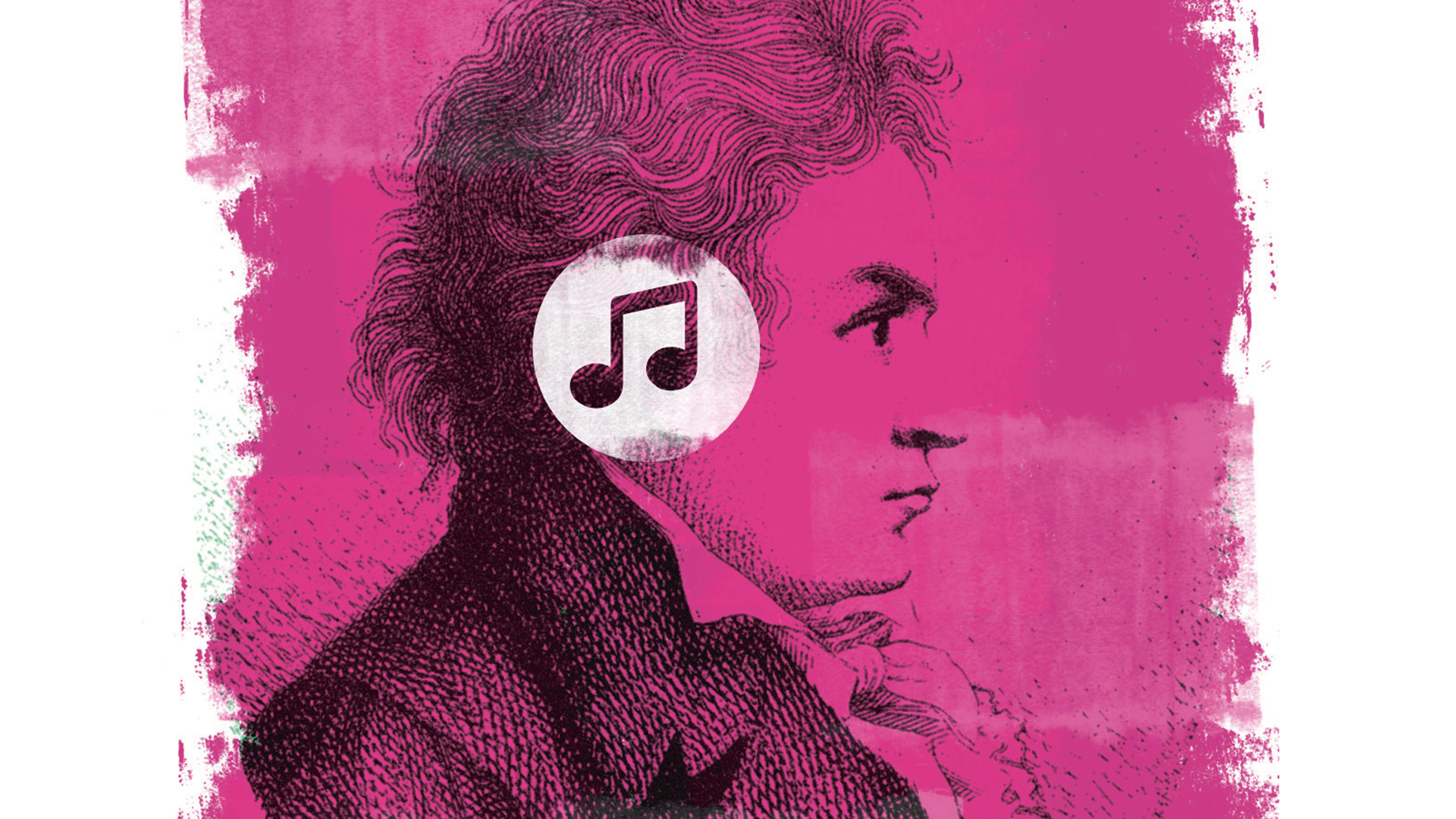When your job involves music, there are few things more devastating than losing your hearing. If you’re tipped to be one of the art world’s leading lights, as Beethoven was when his progressive deafness began, it’s a disaster. The musician referred to his ongoing illness as “that jealous demon, my wretched health”, the title of a new book by Jonathan Noble that charts the various ailments that plagued our best-loved composers. Noble outlines how Beethoven suffered from hearing loss from his late teens onwards, perhaps using his “notorious absent-minded and eccentric behaviour as a smokescreen for his own awful realisation”. Ludwig went on to write some of the most remarkable works in the classical canon, despite battling terrible tinnitus and a worsening ability to hear sounds other than those within his own mind.
Though Beethoven’s stoicism should not be overstated (the composer also suffered from poor mental health, which can be linked to his long-term physical illnesses, among other factors), his continued artistry in the face of adversity continues to inspire. By 1824, Beethoven had very little residual hearing and used an ear trumpet at the premiere of Missa Solemnis, a large-scale mass that was originally intended for the enthronement of his friend and patron Archduke Rudolph as the Archbishop of Olmütz. An unusual performance of Missa Solemnis is set to take place later this month at London’s Royal Festival Hall when The Bach Choir, Orchestra of the Age of Enlightenment and conductor David Hill present what is thought to be the first-ever version that uses sign language (June 28).
The concert sees the ensembles partner with Hearing Link, a UK-wide charity for people with hearing loss, and Paul Whittaker, who will sign the entire performance. Whittaker is also working with the choir to teach them to sign a section of the Credo. It may seem oxymoronic to encourage deaf people to get involved with music, but hearing loss shouldn’t be a barrier to enjoying all of the benefits of music. Music and the Deaf works to promote opportunities for deaf people to access music, through projects such as the Deaf Youth Orchestra. Research frequently underlines music’s ability to improve development, communication skills and team work – things that are equally as important to those who can hear and those
who cannot.
Access of a different sort is the impetus behind the Royal Opera House’s (ROH) annual Big Screen performances, which sees a selection of productions broadcast live across the UK. The screenings are free to attend, and are on offer at a wide range of venues – from caravan parks to castles. Visitors are invited to enjoy the opera from the comfort of their own picnic blanket, with pre-performance chitchat on screen to guide newbies through the plots. This year’s productions are two of ROH’s finest: Carmen (July 2) and The Marriage of Figaro (July 9), the first a tale of tragic flamenco passion; the second one of partner-swapping farce.
Hearing loss shouldn’t be a barrier to enjoying the benefits of music
According to BP, which sponsors the live relays, audience figures continue to bloom: in 2018 around 41,500 people – an increase of almost 20 per cent on the previous year – watched 40 BP Big Screens in 20 locations across the UK. Webcast performances are also popular, with 112,000 viewers taking in La Bohѐme and Don Giovanni via the Royal Opera House’s Facebook and YouTube channels last year, a rise from 15,000 views of La Traviata in 2014, the first-ever online streaming event.
BP has a long history of supporting the arts, sponsoring high-profile organisations such as the National Portrait Gallery and the Royal Shakespeare Company – often amid controversy. The art collective Liberate Tate campaigned for Tate to end its work with BP on ethical grounds; the oil firm consequently ended its sponsorship in 2016, citing the challenging business environment as the reason, rather than the protest. It throws up a difficult conundrum: the BP Big Screens have shared opera with more than 900,000 people, many of whom may not have experienced the music otherwise. But in the age of Extinction Rebellion, cavorting with a fossil fuel provider is a risky business. BP has committed to the Big Screen relays until 2022 – after that, who knows.









